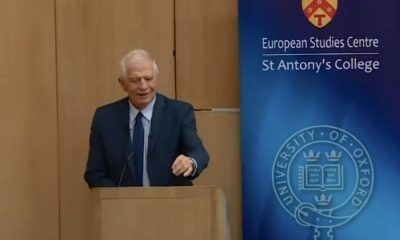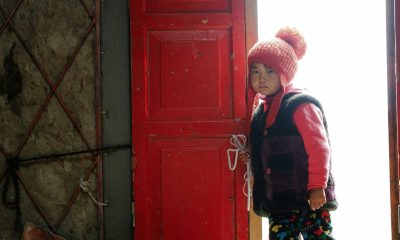Albanië
#Albania godsdienstige leiers doen 'n beroep op Merkel en Macron om die toetredingsgesprekke te begin

 German Chancellor Angela Merkel and French President Emmanuel Macron have been urged to support the opening of EU accession talks with Albania, skryf Martin Banke.
German Chancellor Angela Merkel and French President Emmanuel Macron have been urged to support the opening of EU accession talks with Albania, skryf Martin Banke.The call comes in a letter from heads of religious communities in Albania.
The joint letter addressed to Merkel and Macron was sent on Tuesday (19 June) to Albania’s Minister for Europe and Foreign Affairs Ditmir Bushati.
It urges the two EU leaders to ‘take a positive decision’ on opening accession talks to the EU with Albania.
In April, the European Commission recommended starting talks with Albania and Macedonia to join the EU.The proposed accession negotiations would be the first to be launched for almost five years
The recommendation would need final approval in June by the EU’s heads of government. The pair would join two other Balkan states, Serbia and Montenegro, in talks to join the EU. The commission’s ambitious — if only indicative — plan is that countries from the region could become bloc members as early as 2025.
The letter, seen by this website, says: “At this moment of great historical significance, we wish to underscore once again what we recently stated in our joint declaration of 21 April 2018: we Albanians are part of Europe.
“We are part of a history that stretches back to the origins of Europe. It is a history which goes back thousands of years. Our common cultural and social roots bind us together. We believe that our path towards the EU represents what has always been the desire of our people, with the values of a free society where everyone is able to exercise their rights, among which the right of freedom of religion and belief is fundamental. We are grateful that the history of the Albanian people has revealed a consistent living-out of the value of respect for religious difference, living together harmoniously as one family.”
The letter goes on: “Our path toward the EU is especially critical for our youth. Albanian young people are among the most Euro-enthusiastic anywhere, and yet they are also among the most frustrated, as they live in close proximity to their European peers and yet are excluded from their peers’ opportunities.” The letter states that Albania's younger generations need the opportunities at home that greater integration could provide.
It adds that Merkel and Macron’s support to Albania’s accession process is “particularly important at this critical time, when the values of tolerance, solidarity, and human rights are under great pressure because of radicalism, fanaticism, and other sinister ideologies.”
The religious leaders said: “We together call upon you to recognize the earnest desire of all Albanians, and to support our irreversible commitment to Albania as part of Europe. We reaffirm our commitment to remain steadfast supporters of European values for society with freedom, justice and prosperity for all."
Bushati acknowledged the religious communities’ “commitment at this crucial moment and of major importance for the European future of Albania” and praised them for their contribution in the “maintenance of religious harmony and strengthening of social cohesion in Albania”.
“You have given the most meaningful example that we are Europeans and now is the right moment for each of us to follow this example,” said Bushati.
The letter was signed by H. Skënder Bruçaj, head of the Muslim Community; Archbishop Anastasios of Tirana-Durrës and all Albania (Orthodox Autocephalous Church of Albania); Msgr. Gjergj Meta, General Secretary of the Albanian Bishops’ Conference (Catholic Church); H. Dede Edmond Brahimaj, of the World Bektashi Headquarters and Pastor Ylli Doçi, chairman of the Evangelical Alliance of Albania.
Deel hierdie artikel:
-

 Gemeenskaplike buitelandse en veiligheidsbeleid4 dae gelede
Gemeenskaplike buitelandse en veiligheidsbeleid4 dae geledeEU-buitelandse beleidshoof maak gemeenskaplike saak met die Verenigde Koninkryk te midde van wêreldwye konfrontasie
-

 Brexit2 dae gelede
Brexit2 dae gelede'n Nuwe brug vir jong Europeërs aan beide kante van die Kanaal
-

 Kirgisië3 dae gelede
Kirgisië3 dae geledeDie impak van massa Russiese migrasie op etniese spanning in Kirgisië
-

 Iran3 dae gelede
Iran3 dae geledeWaarom word die oproep van die EU-parlement om die IRGC as 'n terreurorganisasie te lys nog nie aangespreek nie?



























